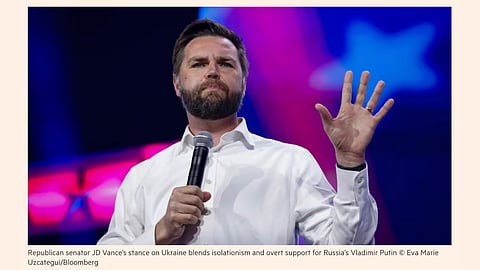From the FT: Putin’s good friends in America
In a stark reversal, the US foreign policy stance on Ukraine is wavering, teetering on the edge of abandoning support just a year after contemplating Russia's accountability for war crimes. As Capitol Hill hesitates, Vladimir Putin exploits divisions within the Republican Party, with figures like JD Vance questioning aid to Ukraine. The FT's Edward Luce argues that Biden must navigate political hurdles, secure Congress's $60bn, and empower Ukraine militarily to counter Putin's strategy, as the consequences reach far beyond Eastern Europe.
Sign up for your early morning brew of the BizNews Insider to keep you up to speed with the content that matters. The newsletter will land in your inbox at 5:30am weekdays. Register here.
Putin's good friends in America
By Edward Luce
Many Republicans resist aid to Ukraine on the basis that anything harmful to Biden must be right for their party
There are few better examples of strategic mood swing than the US foreign policy establishment on Ukraine. A year ago, it was debating Russia's dismemberment and bringing Vladimir Putin to trial for war crimes. Today, as Capitol Hill wobbles over support for Ukraine, Washington is girding for the collapse of western Europe. Hubris and panic are two sides of the same coin; empirical sobriety is in short supply.
___STEADY_PAYWALL___

